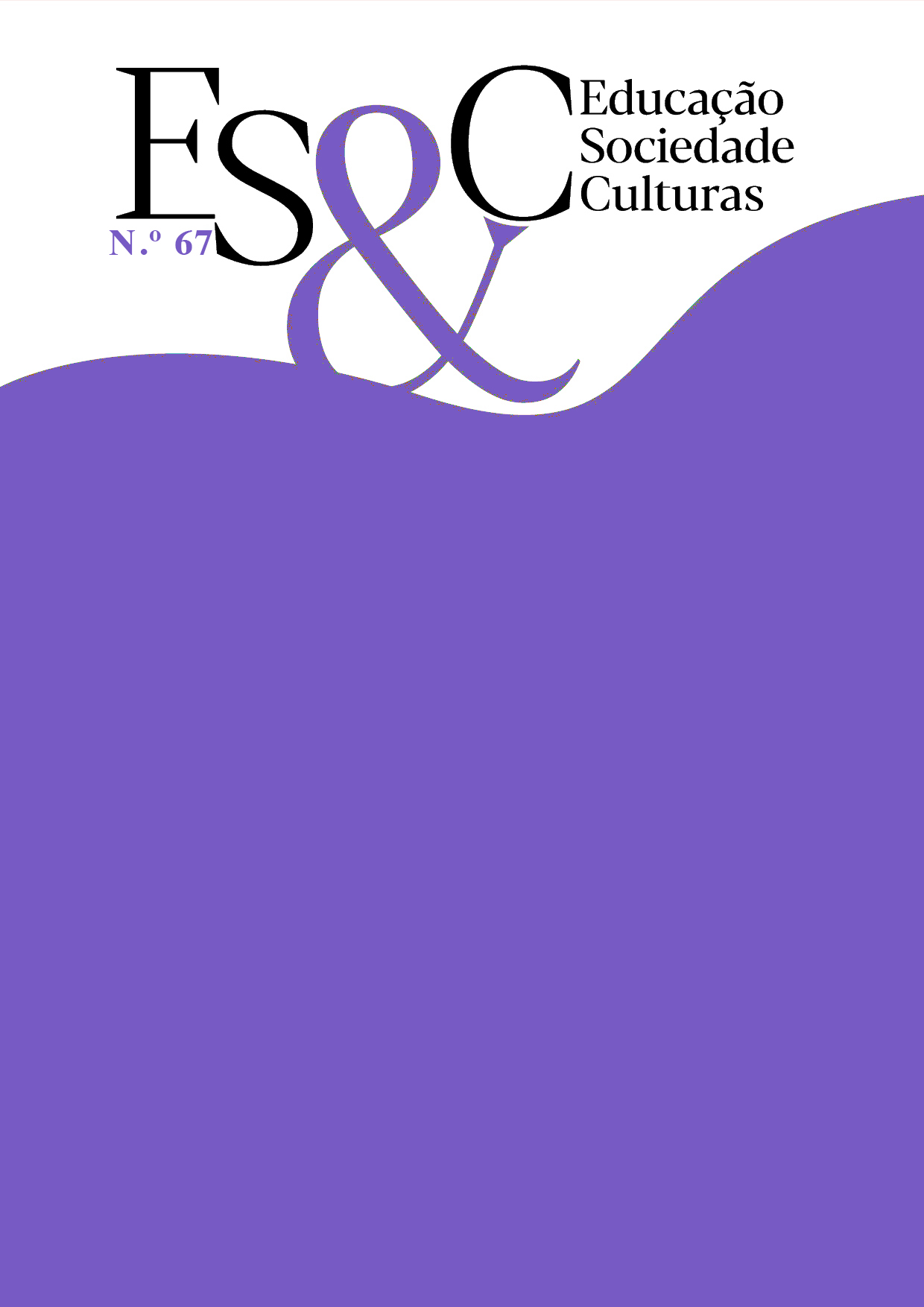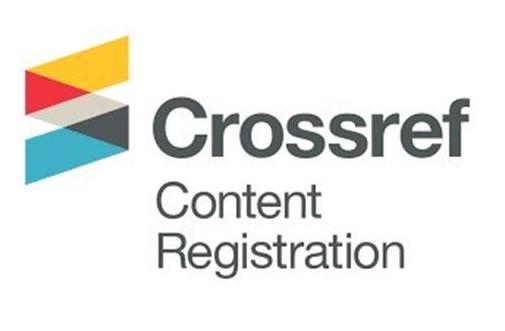Explorar o papel da investigação na formação e no desenvolvimento profissional dos/as professores/as
DOI:
https://doi.org/10.24840/esc.vi67.775Palavras-chave:
formação de professores baseada na investigação, profissionalismo dos/as professores/as, desenvolvimento profissional contínuo, relação teoria-práticaResumo
Este artigo explora e discute o papel da investigação na formação de professores e no desenvolvimento profissional dos/as professores/as. Para tal, apresenta algumas perspetivas sobre a formação de professores baseada na investigação e quadros conceptuais para o profissionalismo dos/as professores/as. A relação entre o conhecimento teórico e prático é discutida juntamente com as dimensões centrais do profissionalismo dos/as professores/as. Três metáforas e figuras de pensamento para a relação teoria-prática são introduzidas e discutidas: a investigação como um espelho, como uma bússola e como uma pedra no sapato. Neste contexto, são apresentados alguns exemplos de modelos para o desenvolvimento profissional dos/as professores/as através do envolvimento crítico e da investigação. É dada especial atenção a um modelo dialógico crítico para a formação de professores e o desenvolvimento profissional que promove a aprendizagem reflexiva através da partilha de experiências e do envolvimento em quadros teóricos. Este modelo integra processos de autoconstrução reflexivo-analógicos, crítico-analíticos e interativos, permitindo que professores/as e alunos/as transformem os seus conhecimentos e práticas com base em novas perceções
Downloads
Referências
Alvunger, Daniel (2021). Curriculum making and knowledge conceptions in classrooms in the context of standards-based curricula. The Curriculum Journal, 32, 607–625. https://doi.org/10.1002/curj.108
Alvunger, Daniel, & Adolfsson, Carl-Henrik (2016). Introducing a critical dialogical model for vocational teacher education. Nordic Journal of Vocational Education and Training, 1(6), 53–75. https://doi.org/10.3384/njvet.2242-458X.166153
Alvunger, Daniel, & Wahlström, Ninni (2017). Research-based teacher education? Exploring the meaning potentials of Swedish teacher education. Teachers and Teaching: Theory and Practice, 24(4), 332-349. https://doi.org/10.1080/13540602.2017.1403315
Alvunger, Daniel, & Wahlström, Ninni (2018). Lärarutbildningens forskningsbasering [Research-based teacher education]. In Daniel Alvunger & Ninni Wahlström (Eds.), Den evidensbaserade skolan. Svensk skola i skärningspunkten mellan forskning och praktik (pp. 101-134). Natur & Kultur.
Barber, Michael, & Mourshed, Mona (2007). How the world’s best-performing school systems come out on top. McKinsey & Company.
British Educational Research Association, & Action and Research Centre. (2014). Research and the teaching profession: Building the capacity for a self-improving system. Final report of the BERA-RSA inquiry into the role of research in teacher education. BERA-RSA Inquiry into Research and Teacher Education.
Biesta, Gert (2015). What is education for? On good education, teacher judgement, and educational professionalism. European Journal of Education, 50(1), 75–87. https://doi.org/10.1111/ejed.12109
Carlgren, Ingrid (2015). Kunskapskulturer och undervisningspraktiker [Knowledge cultures and teaching practices]. Daidalos
Cochran-Smith, Marilyn (2002). The research base for teacher education: Metaphors we live (and die?) by. Journal of Teacher Education, 53(4), 283–285. https://doi.org/10.1177/0022487102053004001
Cochran-Smith, Marilyn (2012). Trends and challenges in teacher education: National and international perspectives. In F. Waldron, J. Smith, M. Fitzpatrick, & T. Dooley, Re-imagining initial teacher education: Perspectives on transformation (pp. 29–53). The Liffey Press.
Cochran-Smith, Marilyn, & Lytle, Susan (1999). Relationships of knowledge and practice: Teacher learning in communities. Review of Research in Teacher Education, 24(1), 249–305. https://doi.org/10.2307/1167272
Colucci-Gray, Laura, Das, Sharmistha, Gray, Donald, Robson, Dean, & Spratt, Jennifer (2013). Evidence-based practice and teacher action-research: A reflection on the nature and direction of ‘change’. British Educational Research Journal, 39(1), 126–147. https://doi.org/10.1080/01411926.2011.615389
Deng, Zongyi (2020). Knowledge, content, curriculum, didaktik: Beyond social realism. Routledge.
Deng, Zongyi, & Luke, Allan (2008). Subject matter: Defining and theorizing school subjects. In F. Michael Connelly, Ming Fang He, & JoAnn Phillion (Eds.), The SAGE handbook of curriculum and instruction (pp. 66-88). SAGE. https://doi.org/10.4135/9781412976572
Dewey, John (1929). On the sources of a science of education. Horace Liveright.
Drew, Valerie, Priestley, Mark, & Michael, Maureen K. (2016). Curriculum development through critical collaborative professional enquiry. Journal of Professional Capital and Community, 1(1), 92–106. https://doi.org/10.1108/JPCC-09-2015-0006
Darling-Hammond, Linda (2006). Constructing 21st-century teacher education. Journal of Teacher Education, 57(3), 300–314. https://doi.org/10.1177/0022487105285962
Englund, Tomas, & Solbrekke, Tone D. (2015). Om innebörder i lärarprofessionalism [On the meanings of teacher professionalism]. Pedagogisk forskning i Sverige, 20(3–4), 168–194. https://open.lnu.se/index.php/PFS/article/view/1413
Evetts, Julia (2011). A new professionalism? Challenges and opportunities. Current Sociology, 59(4), 406–422. https://doi.org/10.1177/0011392111402585
Evetts, Julia (2013). Professionalism: Value and ideology. Current Sociology, 61(5–6), 778–796. https://doi.org/10.1177/0011392113479316
Furlong, John, McNamara, Olwen, Campbell, Anne, Howson, John, & Lewis, Sarah (2008). Partnership, policy and politics: Initial teacher education in England under new labour. Teachers and Teaching: Theory and Practice, 14(4), 307–318. https://doi.org/10.1080/13540600802037728
Göranzon, Bo (2009). Det praktiska intellektet: Datoranvändning och yrkeskunnande [The practical intellect: Computing and professionalism] (2nd ed). Santérus.
Hammarén, Maria (2002). Yrkeskunnande, berättelser och språk [Skills, stories and language]. In P. Tillberg (Ed.), Dialoger: Om yrkeskunnande och teknologi (pp. 336–344). Föreningen Dialoger.
Hammarén, Maria, & Göranzon, Bo (2006). The methodology of the dialogue seminar. In B. Göranzon, M. Hammarén, & R. Ennals (Eds.), Dialogue, skill and tacit knowledge (pp. 57–68). John Wiley & Sons.
Harford, Judith (2010). Teacher education policy in Ireland and the challenges of the twenty-first century. European Journal of Teacher Education, 33(4), 349–360. https://doi.org/10.1080/02619768.2010.509425
Healy, Mick, & Jenkins, Alan (2009). Developing undergraduate research and inquiry. The Higher Education Academy.
Hultman, Glenn (2018). Konkurrensen mellan forskning och erfarenhet: Noteringar om forskningsanvändning i skolan [The competition between research and experience: Notes on the use of research in schools]. Daniel Alvunger & Ninni Wahlström (Eds.), Den evidensbaserade skolan: Svensk skola i skärningspunkten mellan forskning och praktik (pp. 135-170). Natur & Kultur.
Ingersoll, Richard (2011). Power, accountability, and the teacher quality problem. In S. Kelly (Ed.), Assessing teacher quality: Understanding teacher effects on instruction and achievement. Teachers College Press.
Johannessen, Kjell (2002). Det analogiska tänkandet [Analogical thinking]. In P. Tillberg (Ed.), Dialoger: Om yrkeskunnande och teknologi (pp. 288–299). Föreningen Dialoger.
Klette, Kirsti (2002). What are Norwegian teachers meant to know? Norwegian teachers talking. In K. Klette, I. Carlgren, J. Rasmussen, & H. Simola (Eds.), Restructuring Nordic teachers: Analyses of interviews with Danish, Finnish, Swedish and Norwegian teachers (pp. 71–93). Institute for Educational Research, University of Oslo.
Kögler, Hans-Herbert (1996). The power of dialogue: Critical hermeneutics after Gadamer and Foucault. MIT Press.
Lawn, Martin, & Grek, Sotiria (2012). Europeanizing education: Governing a new policy space. Symposium Books.
Moore, Alex, & Clarke, Matthew (2016). ‘Cruel optimism’: Teacher attachment to professionalism in an era of performativity. Journal of Education Policy, 31(5), 666–677. https://doi.org/10.1080/02680939.2016.1160293
Moreira, Fernanda, & Ferreira, Elisabete (2014). Theory, practice and relation in nurse and teacher education, Educação, Sociedade & Culturas, 41, 127–148. https://doi.org/10.34626/esc.vi41.295
Munthe, Elaine, & Rogne, Magne (2015). Research-based teacher education. Teaching and Teacher Education, 46, 17–24. https://doi.org/10.1016/j.tate.2014.10.006
Natale, Catherine F., Bassett, Katherine, Gaddis, Lynn, & McKnight, Katherine (2013). Creating sustainable teacher career pathways: A 21st century imperative. Pearson Education.
Nordenstam, Tore (2009). The power of example. Santérus.
Nordin, Aandreas, & Sundberg, Daniel (Eds.). (2014). Transnational policy flows in European education: The making and governing of knowledge in the education policy field. Symposium Books.
Organisation for Economic Co-operation and Development. (2005). Teachers matter: Attracting, developing and retaining effective teachers. OECD. https://doi.org/10.1787/9789264018044-en
Priestley, Mark, & Biesta, Gert (2013). Introduction: The new curriculum. In M. Priestley & G. Biesta (Eds.), Reinventing the curriculum: New trends in curriculum policy and practice (pp. 1–12). Bloomsbury.
Raminho, Edney G., Silva, M. Cristina, & Brito, Renato O. (2021). A formação inicial de professores e o ensino de língua materna: Contextos Contemporâneos [The initial teacher qualification and the maternal language teaching: Contemporary contexts]. Educação, Sociedade & Culturas, 60, 117–131. https://doi.org/10.24840/esc.vi60.365
Robertson, Susan L. (2012). Placing teachers in global governance agendas. Comparative Education Review, 56(4), 584–607. https://doi.org/10.1086/667414
Ryle, Gilbert (1949). The concept of mind. Penguin.
Sachs, Judyth (2016). Teacher professionalism: Why are we still talking about it? Teachers and Teaching: Theory and Practice, 22(4), 413–425. https://doi.org/10.1080/13540602.2015.1082732
Schön, Donald A. (1987). Educating the reflective practitioner: Toward a new design for teaching and learning in the professions. Jossey-Bass.
Sousa, Rita T., Lopes, Amélia, & Boyd, Pete (2021). On research in initial teacher training programmes: Cases in Portugal and England. Educação, Sociedade & Culturas, 58, 157–178. https://doi.org/10.24840/esc.vi58.115
The Swedish Higher Education Authority. (2015). Högre utbildning och forskningsanknytning [Higher education and research-connection]. The Swedish Higher Education Authority.
Toom, Auli, Kynäslahti, Heikki, Krokfors, Leena, Jyrhämä, Riitta, Byman, Reijo, Stenberg, Katariina, Maaranen, Katriina, & Kansanen, Pertti (2010). Experiences of a research-based approach to teacher education: Suggestions for future policies. European Journal of Education, 45(2), 331–344. https://doi.org/10.1111/j.1465-3435.2010.01432.x
Wahlström, Ninni, & Alvunger, Daniel (2015). Forskningsbasering av lärarutbildningen: Delrapport från SKOLFORSK-projektet [Basing teacher education on research: Part time report from the SKOLFORSK-project]. Skolforskningsinstitutet.
Westbury, Ian, Hansén, Sven-Erik, Kansanen, Pertti, & Björkvist, Ole (2005). Teacher education for research‐based practice in expanded roles: Finland’s experience. Scandinavian Journal of Educational Research, 49(5), 475–485. https://doi.org/10.1080/00313830500267937
Åberg, Sven (2008). Spelrum: Om paradoxer och överenskommelser i musikhögskolelärarens praktik [Spelrum: On paradoxes and agreements in the practise of higher musical education]. Dialoger.
Downloads
Publicado
Como Citar
Edição
Secção
Licença
Direitos de Autor (c) 2024 Daniel Alvunger

Este trabalho encontra-se publicado com a Licença Internacional Creative Commons Atribuição-NãoComercial-CompartilhaIgual 4.0.
Os/as autores/as mantêm os direitos autorais, sem restrições, e concedem à revista ESC o direito de primeira publicação, com o trabalho simultaneamente licenciado sob a Creative Commons Atribuição-NãoComercial-CompartilhaIgual 4.0 Internacional (CC BY-NC-SA). É permitido copiar, transformar e distribuir e adaptar o material em qualquer suporte ou formato, desde que com o devido reconhecimento da autoria e publicação inicial nesta revista, as alterações sejam identificadas e seja aplicada a mesma licença ao material derivado, não podendo ser usado para fins comerciais.









